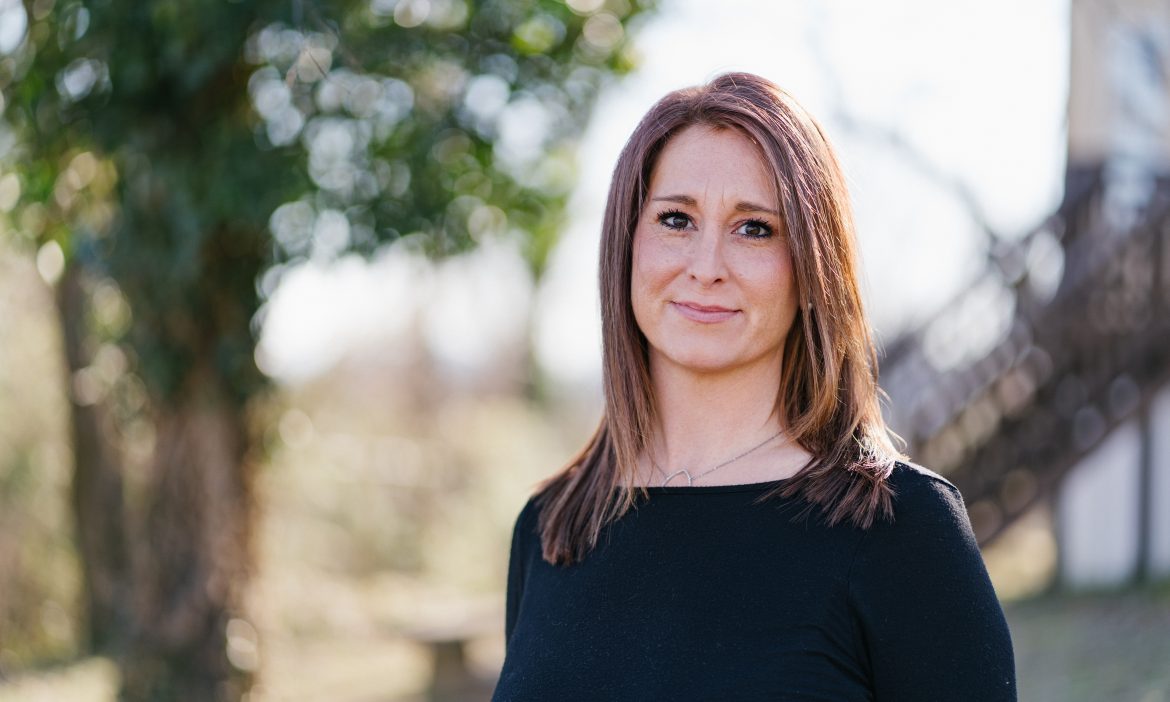Jill Bozeman accepted the fact that she was going to die. She’d been addicted to opioids since her doctor prescribed them for migraines 10 years ago, but it wasn’t until now — after giving birth to four children while in various stages of addiction — that she recognized the truth:
Her addiction would take her life — just as it had her mother’s.
“She died from an overdose when I was 16,” Jill says. “I didn’t realize it at the time, but losing her just four years after my dad died of a heart attack instilled a belief in me: ‘I am alone in this world.’ That caused a huge amount of anxiety, and I still struggle with it today. The difference is now I know I’m capable of overcoming it. Susannah’s House gave me that.”
Susannah’s House is a treatment program in Knoxville that teaches mothers healthy coping skills and helps them break the cycle of addiction. In a state where at least three people die from an opioid-related overdose every day, the need for such a service is increasingly real. In 2016, the BlueCross BlueShield of Tennessee Health Foundation gave $100,000 to support their work.
“It was a natural fit for our foundation to partner with Susannah’s House at the time because not only was addiction becoming a major issue, but the rates of children born with neonatal abstinence syndrome in East Tennessee had also continued to grow. Historically, there had not been enough programming to meet these needs,” says Chelsea Johnson, manager of community relations and health foundation for BlueCross.

By providing intensive outpatient treatment only for mothers, Susannah’s House gives small groups of women personal, in-depth care. Every recovery is different, but they all begin with the same thing: finding the root of the addiction.
Cause and effect
Jill knew she liked the migraine medication before her doctor ever prescribed it. A family member had shared pills with her, and Jill liked the fact that they helped quiet her mind. Less than a month after getting a prescription, she was taking more than she needed. She started visiting different emergency rooms and doctors, making up stories to get the medication.
When Jill ran out of the prescription medications, she met a man who agreed to share his methadone with her. Everything spiraled out of control from there, and she found herself pregnant. Then she finally asked for help.
Jill’s therapist referred her to a clinic where she was prescribed suboxone, an opiate that can help reduce symptoms of addiction and withdrawal. Suboxone has its place, Jill says, but for her it was just another fix. She soon found herself snorting pills, and to this day, suboxone is still the only substance Jill ever shot up.
“I understand prescribing it for a week or so to detox, but I was prescribed it for six years,” says Jill. “Dr. [Susan] Webb at Susannah’s House was the first person to say, ‘We’re going to get you off of this.’”

Hard-line hope
Dr. Webb told Jill that when she relapsed, as she inevitably would, she would no longer prescribe the medication. Knowing she would have to face the end of her addiction one way or another gave Jill hope.
“I fell in love with Susannah’s House,” she says.
“They helped me to understand that if treatment is going to work, it has to be long term.”
Today, Jill is six months clean. Since she stopped using, she’s completed three of the four stages of treatment. She visits Susannah’s House on Mondays, Wednesdays and Fridays, and she and her 1-year-old son, Parker, are doing well. She’s happy to be sober, she says, but she’s even happier that she now has the tools to stay that way.
“This is an epidemic that is fueled by hurt,” Jill says. “To eliminate abuse, you would have to eliminate human beings because we all have hurt. What we don’t all have are coping skills — mindfulness, meditation, deep breathing. If we give those skills to mothers and children, we can break the cycle.”

Hope beyond Susannah’s House
BlueCross began its efforts to combat the opioid epidemic on a state and local in 2013, after seeing an alarming trend of mothers using opioids while pregnant in the Upper Cumberland/East Tennessee region. We developed partnerships to help better serve babies being born dependent on drugs – as well as their mothers. Our foundation supported grassroots efforts like Count it! Lock it! Drop it!, which encouraged safekeeping and proper disposal of prescription drugs. And with guidance from health care providers and public health officials, we began making changes to how we cover these drugs to help protect our neighbors in Tennessee.

